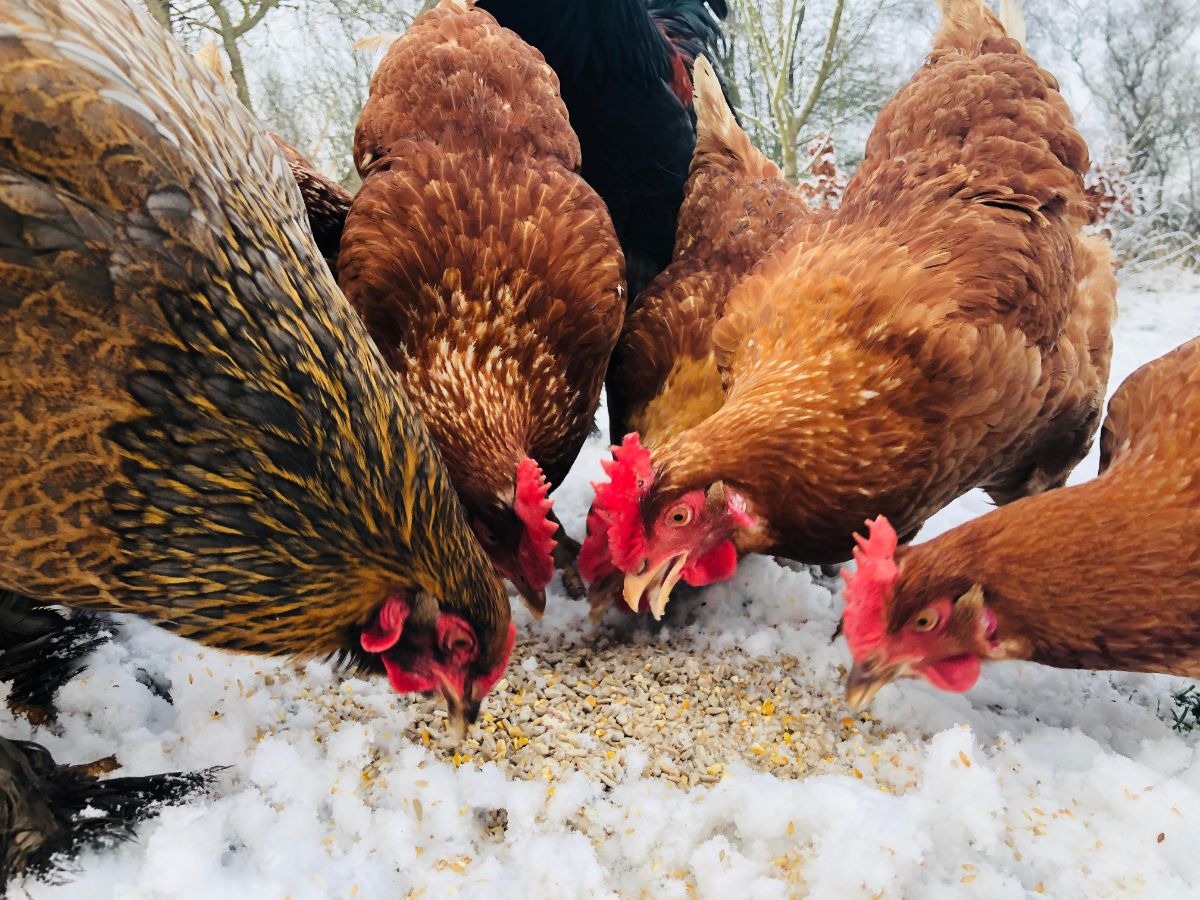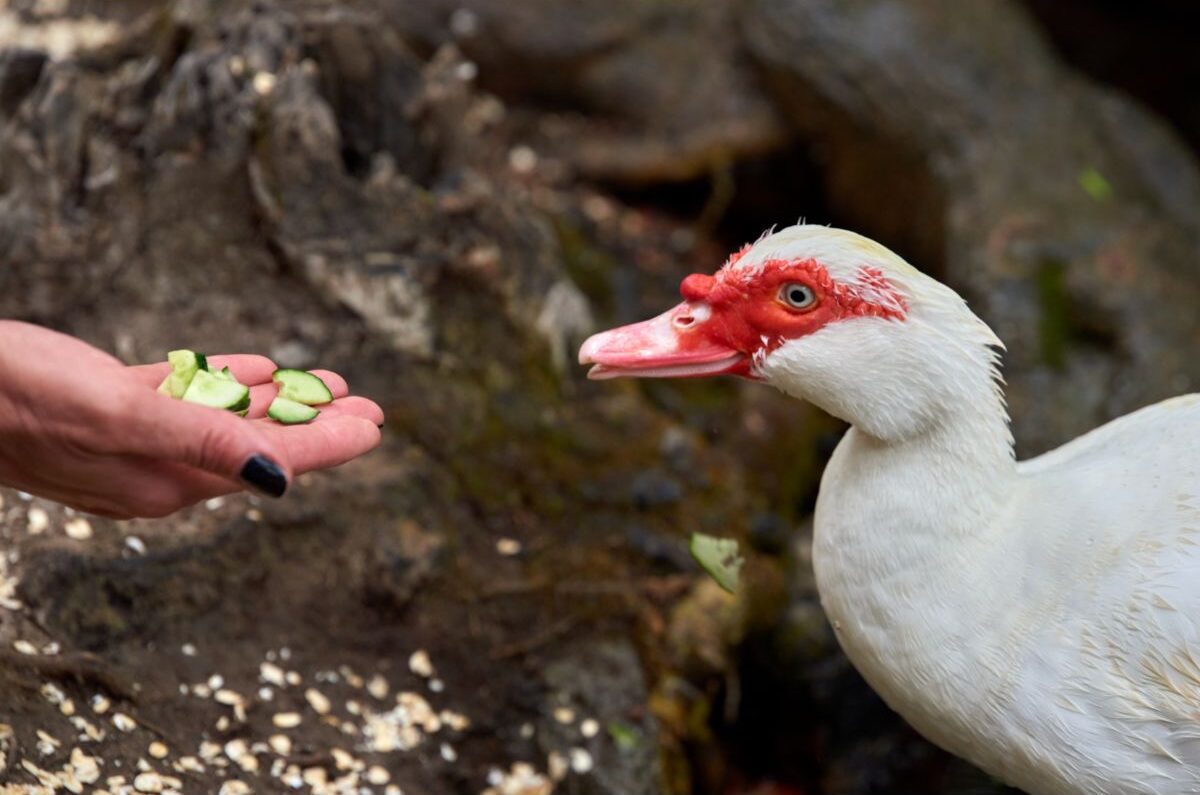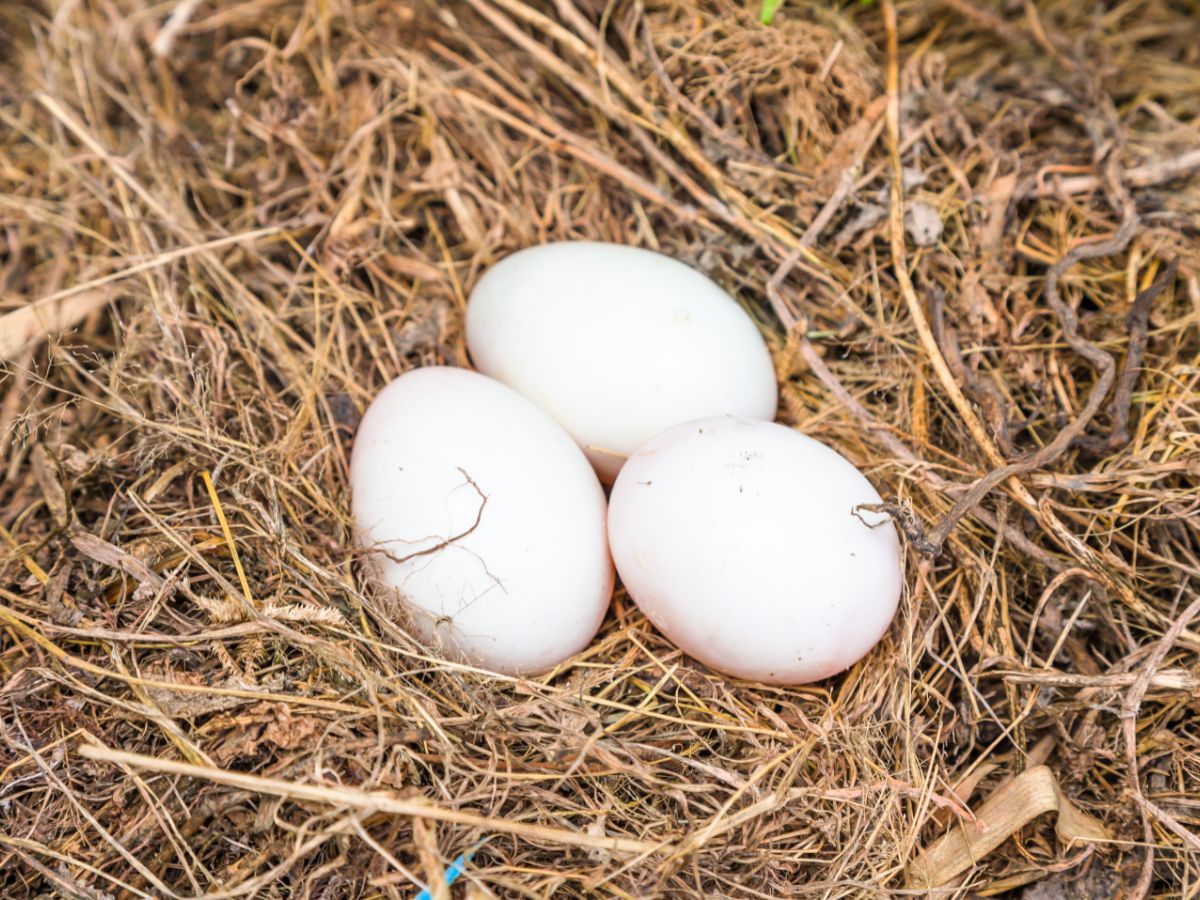Chickens are not particularly fickle when it comes to eating, so giving them treats needn’t be difficult or expensive. However, some treats can make your chickens get utterly excited. You can give your chickens treats specific to a goal (other than their happiness), such as healthy and strong eggs or improved gut health.
You can give your chickens treats from the garden, you can buy treats, or if you are feeling particularly creative or industrious, you can make them delicious and fun treats in the kitchen. Knowing what chickens can and should not eat is good for maintaining and improving their health.
You probably want to spoil your feathered friends, bringing you here. After all, they provide eggs, pest control, manure, and entertainment, amongst other things. Hopefully, you’ll also get warm and fuzzy feelings when you watch them enjoying their treats, knowing you are doing your best as a conscientious keeper of chickens.
Contents
What Are The Best Natural Treats For Chickens?
Chickens are omnivores, meaning they eat animals and plants as a part of a balanced diet. From plants, chickens get nutrients that make their eggs rich in color, flavor, and nutrients. From animals, they get more protein and calcium, adding to the nutritional value and strength of their eggs. An imbalance in diet will cause a chicken to be malnourished and lay weak eggs if any at all.
When feeding and treating your chickens, it is best to follow the 90/10 Rule. The 90/10 Rule means that 90 percent of a chicken’s diet should be made of food considered a complete feed. Complete feeds provide all of the 38 nutrients a chicken needs at the correct ratios according to their stage of development. The other 10 percent of chicken feeding can be made up of treats.
The Best Plant Treats For Chickens
As with humans, there are plants we can eat and plants we should not eat. The vitamin and mineral content differ from plant to plant, and most plants provide a measure of fiber and water content that assist with gut health. There are many plants chickens can eat, but whether or not the offering is considered a treat is up to the chicken.
Plant Treats Your Chickens Will Love
| Plant Treat | Notes On Plant Treat |
| Beans | Beans should never be fed raw because they contain a toxin called phasin, which is harmful to chickens (and also humans) and is rendered harmless by cooking. Good options are: Kidney beans, green beans, fire beans, wax beans. |
| Berries | Strawberries and blueberries are favorites, but berries generally are a treat. |
| Broccoli and Cauliflower | Chickens will pick at broccoli and cauliflower all day if they are in a suet cage. |
| Cabbage and Brussels sprouts | Whole cabbage heads can be hung from the ceiling of the coop, creating a chicken sport of hop-and-peck and healthy eating. |
| Carrots | Chickens enjoy the root and foliage of carrots. |
| Corn | Corn can be on the cob, canned, raw, or cooked. |
| Cucumbers | Chickens enjoy the seeds and flesh of matured cucumbers. |
| Flowers | Marigolds, nasturtiums, and Lavender flowers are enjoyable flowers, but ensure they have not been sprayed with pesticides, especially if you bought them from a florist or shop. |
| Fruit | Apples, bananas, pears, peaches, seedless grapes, and cherries are popular fruits that chickens enjoy. |
| Leafy Greens | Spinach, chickweed, lettuce, and kale provide delicious hydration and a source of B-vitamins and iron. |
| Melons | Chickens love the seeds and the flesh of melons. In summer, a cooled melon provides great hydration for chickens. |
| Barley and Oats | These can be raw or cooked, but cooked has increased nutritional value. |
| Peas | Chickens enjoy the peas, pea tendrils, and flowers. |
| Pomegranates | Chickens love the seeds of pomegranates. |
| Pumpkins and Winter Squash | Chickens enjoy the seeds and the flesh of squashes. |
| Raisins | Raisins are a good source of iron. |
| Sprouts | Chickens love wheat and oat sprouts. |
| Seeds | Shelled or unshelled, sunflower seeds are a good treat for healthy feathers and eggs. Chickens enjoy sesame seeds, too. |
Here is another list of the best herbs for chickens and what they are good for.
The Best Animal Treats For Chickens
Chickens get protein from animals and bugs; their favorite bugs are arguably mealworms. If you offer your chickens meat, it should be cooked and chopped up. Some people will even give a cooked lobster head to their chickens. The chickens eyed it out first for some time before pecking at it.
Feeding your chickens fatty food should be kept to a minimum, as fat can cause Fatty Liver Hemorrhagic Syndrome (FLHS), which can be fatal to chickens. FHLS is when fat builds up around the chicken’s liver and causes the liver to become soft and start bleeding. We want to avoid that.
Animal Treats Your Chickens Will Love
| Animal Treat | Notes On Animal Treat |
| Cooked Eggs | Despite seeming slightly cannibalistic, scrambled and hard-cooked eggs and broken egg shells are marvelous treats that provide calcium and protein for chickens. |
| Live Crickets | Live crickets provide lots of protein and entertainment for chickens. |
| Mealworms* | If chickens could vote for their favorite treat, it would probably be mealworms. You can buy mealworms or breed your own, as it would be cheaper. |
| Cooked Meat Scraps | Any meat scraps can be given to chickens, as long as they are not too fatty. |
| Earthworms* | Earthworms are also usually very popular with chickens, they provide protein and nutrients. |
Chickens Treats From The Kitchen
If you want to make or buy a special treat for your chickens, there are many things you can do or make to provide a yummy and entertaining treat for them. Ideas include anything from stringing a garland of cored apples and popcorn for your chickens to hop and peck at, to making them a warm bowl of oatmeal, berries, and yogurt for those cold winter days. You can be creative!
Sometimes you have an excess of prepared food or food that looks like it’s about to go off. If you don’t want to throw it in the bin, you can give it to your chickens. Chickens eat weird things, but a good rule is that if food is considered edible for human consumption, then it’s probably safe enough for your chickens to eat.
| Kitchen Treat | Notes On Kitchen Treat |
| Cereal | Cereal with or without milk is a treat for chickens, but you should avoid giving them high-sugar cereals like Coco-Pops or Frosties. |
| Cheeses | Cheese provides calcium and protein. It is fatty, so you should feed it in moderation. Chickens also enjoy cottage cheese. |
| Leftovers | You should not give your chickens leftovers if the leftovers are moldy, oily, sugary, salty, unidentifiable, or spoiled. |
| Pasta | Chickens enjoy pasta a lot, and watching them eat it (especially cooked spaghetti) is entertaining. Pasta does not contain much nutritional value, so you should give it in moderation. |
| Rice | White rice has little nutrition, so rice with lentils or vegetables (like a pilaf mix) might be a nice treat. It would be best to always cook rice before feeding it to chickens. |
| Yogurt | Yogurt that is plain or flavored is a big favorite for chickens. Additionally, it is an excellent source of probiotics that is good for their intestinal health. Plain yogurt is better than artificially flavored and sweetened yogurt. |
Conclusion
Giving your chickens the best treats needn’t be difficult or expensive. You can make, grow, buy or find treats for your chickens. Treats can be purely for making your chickens happy, or they can have a purpose in mind, for example, improved intestinal health, improved egg production, hydration during summer, and warming nutrition during winter.
Here you will find an article with the 12 best feed options for chickens with lots of protein and live food.




